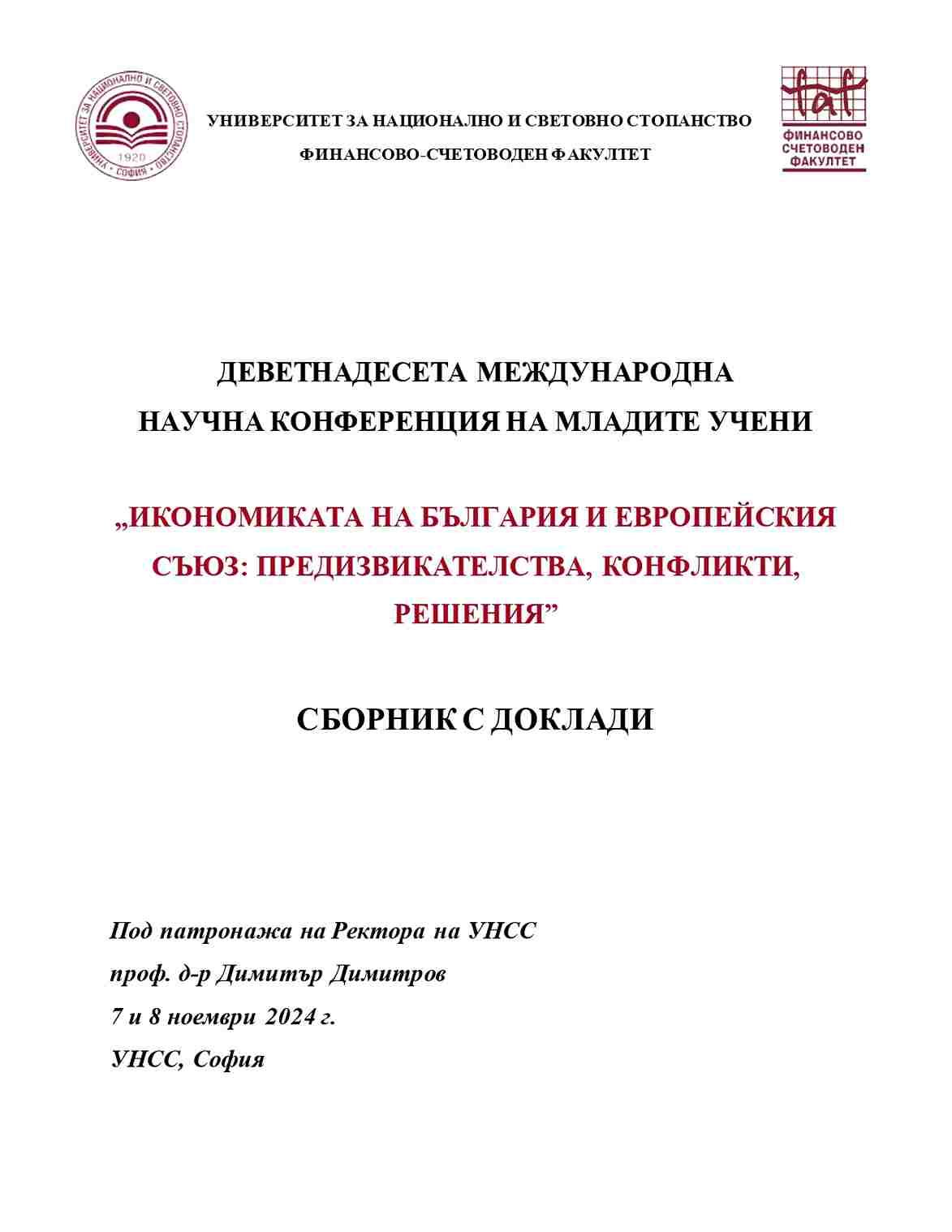Дигитални стратегии и управленски предизвикателства в условията на навлизане на изкуствен интелект
Digital Strategies and Managerial Challenges in the Еra of Widespread Adoption of Artificial Intelligence
Author(s): Svetla Tsenova
Subject(s): Social Sciences, Economy, Business Economy / Management, Sociology, Management and complex organizations, Social Informatics, ICT Information and Communications Technologies
Published by: Университет за национално и световно стопанство (УНСС)
Keywords: digital strategies; project management; challenges; digital transformation; innovation
Summary/Abstract: The rapid development of digital technologies significantly increases the need for adapting organizational strategies and transforming business models, necessitating a holistic reformatting of the organization at various levels and through different lenses. In the current environmental conditions, where it becomes clear that the old pursuit of endless growth leads to overproduction and irresponsible and senseless waste of finite resources, which does not meet the current imperatives for environmental sustainability, sustainable development, and reasonable consumption, it is time for a disruptive shift in the economic paradigm. This backdrop sets the stage for new behavior and thinking among economic entities. Most of them see solutions not in the previous incremental improvements but in the revolutionary opportunities offered by digitalization, the management of and through big data, and artificial intelligence. And yes, artificial intelligence is a zero-waste technology, with no direct carbon footprint, redirecting society's consumer aspirations, saving time, especially for specialists who process large volumes of information to produce their quality final product—be it advertising, creative, legal, psychological, scientific, in customer service, or in making managerial decisions. Concerns about replacing certain groups of experts and specialists can only be a topic for those professionals who are not ready to develop in step with their time. For the rest, the use of artificial intelligence in daily work is a convenient and useful tool that brings benefits to those who are ready to get to know it. Yes, artificial intelligence—as a product of collective knowledge and its arithmetic mean—may offer speed, first steps, and a foundation in performing a certain set of activities, but the first (setting the task) and the last word (review and evaluation of the result) belong to the specialist, expert, manager, etc. At this stage, artificial intelligence remains, at best, an extrapolated collective result and arithmetic mean, but always and only within the limits of collective human knowledge and experience. Deviations—both good and bad—from this "collective average" will long remain the prerogative of natural intelligence and the professional Homo sapiens. For us, as managers and researchers of the interconnections between theory and practice, the above description is only the backdrop and stage on which we will strive to develop and expand our own expertise to fit adequately into this increasingly digitalized scene with our own contribution.
- Page Range: 535-548
- Page Count: 14
- Publication Year: 2025
- Language: Bulgarian
- Content File-PDF

